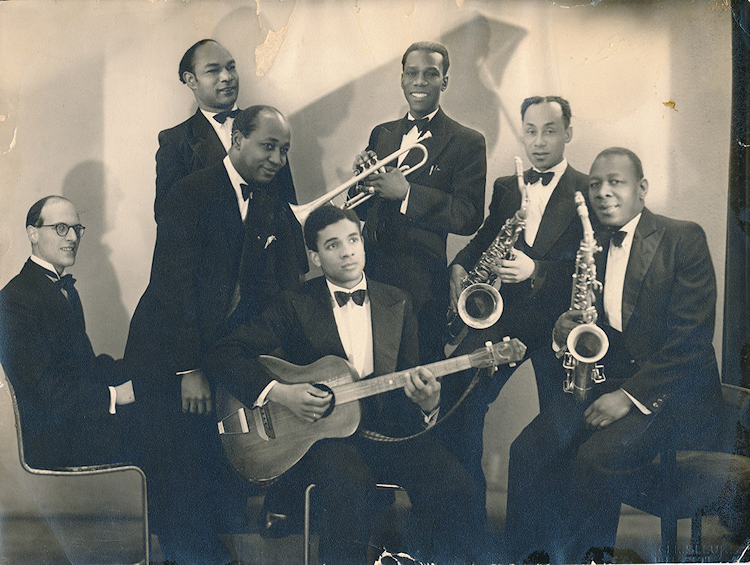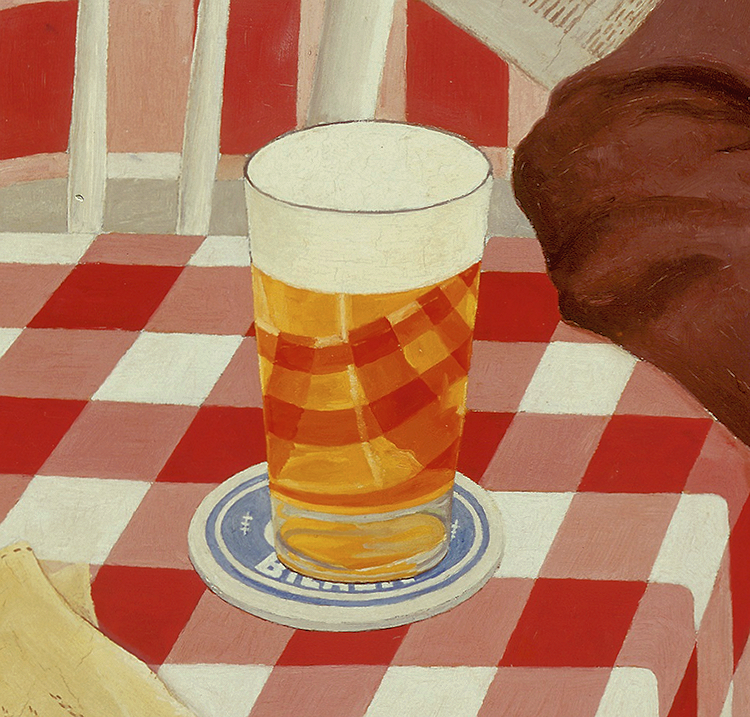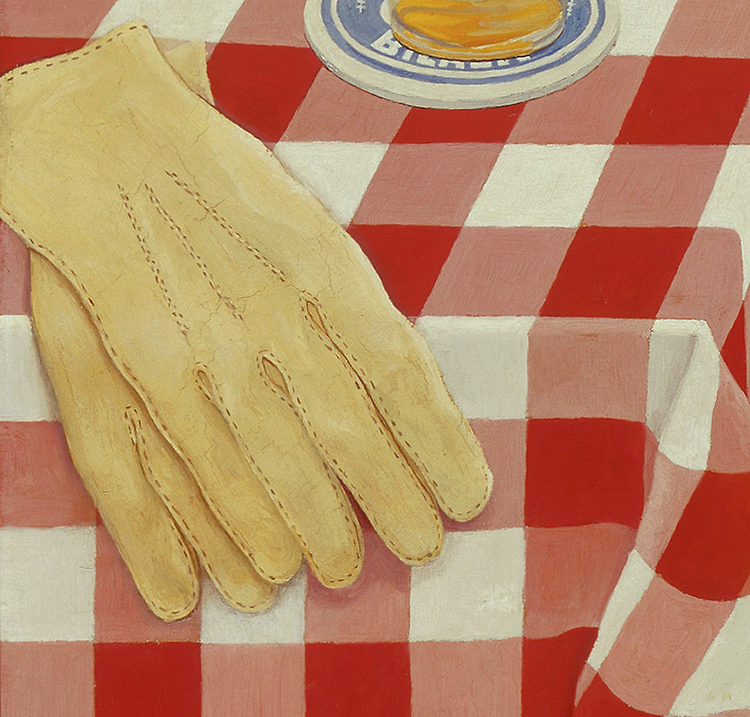In a letter written in the 1980s, the artist recalled, "Then I started on a fairly large painting of Lou Drenthe. He was sitting on a café terrace, princely, beautiful clothes, yellow gloves on the table in front of him, with a glass of beer, on the tables white and red checkered tablecloths. It really was a unique painting and I was successful with it. Working with Lou Drenthe was very pleasant, he was a nice guy." Also, it appears he began to educate her about the abuses in his home country, then still a Dutch colony, "(…) he was the first to tell me about the conditions and relations in Suriname."
*
 |
| Circa 1920s. |
The man in the painting was Louis "Lou" Richard Drenthe (25 September 1901, Paramaribo - 18 August 1990, Amsterdam). Born in Suriname, his paternal ancestors were enslaved on the sugar plantation De Guinesche Vriendschap. He was originally a pipefitter, but after arriving in Amsterdam in 1925, he earned his living in other ways. He worked as a model and actor, and waited tables in the first Surinamese restaurant in Amsterdam. But above all, he was a trumpet player and sometime drummer, associating with the likes of famous jazz musicians Freddy Johnson and Kid Dynamite.
 |
| Drenthe with his trumpet at center, orchestra leader (?) of the St. Louis Rhythm Kings (?), circa 1930s. |
According to his daughter, he was a always a very dignified, confident man, but by the 1950s he was occasionally forced to take jobs that he felt were beneath him: "Father had no work at the time, so he did everything he could. He had to make some money for his household, didn't he?" He struggled with health problems later in life and was no longer able to play music. But he helped his wife Letty with her successful perfume business. He died in Amsterdam at the age of eighty-eight.
(It was formerly believed that the model for the painting was Jimmy van der Lak, also an émigré from Suriname, who found success as a boxer, barman, and cabaret artist. He was also a co-owner of the Surinamese restaurant where Drenthe had been employed.)
*
 |
| Artist Hatterman with the painting, 1932. Still from a newsreel. |











Een contrast van tween mensen, een zwarte man en een blanke vrouw, de poser en de artiest.
ReplyDeleteIronisch - Hij is geboren in Surinam, zij is geboren in Nederland.
Hij sterft in Nederland en zij sterft in Surinam.
Gods wil voor beide, zoals veel kunstenaars, kampioenen voor het fatsoen van gelijkheid.
(")
Herr Drenthe, ein eleganter und kultivierter mann.
DeleteFrau Hatterman, so inklusiver und fortschrittlicher aktivist.